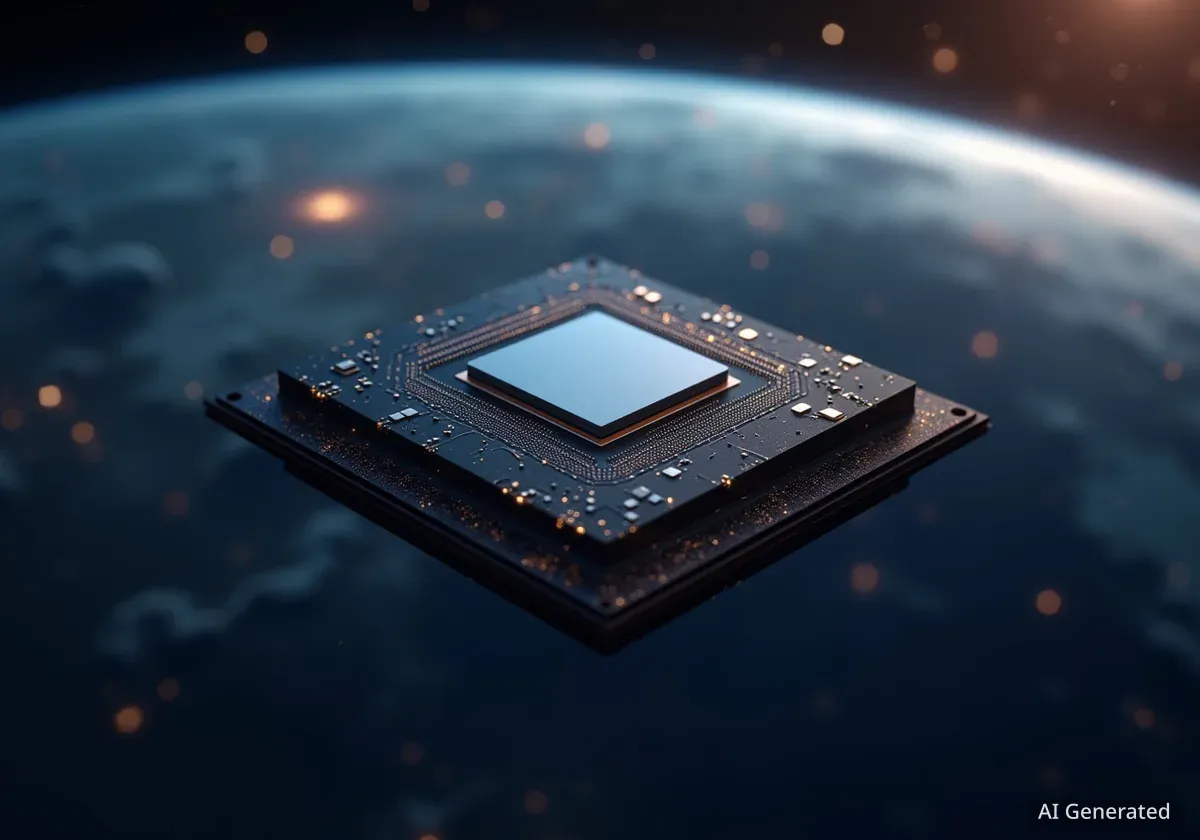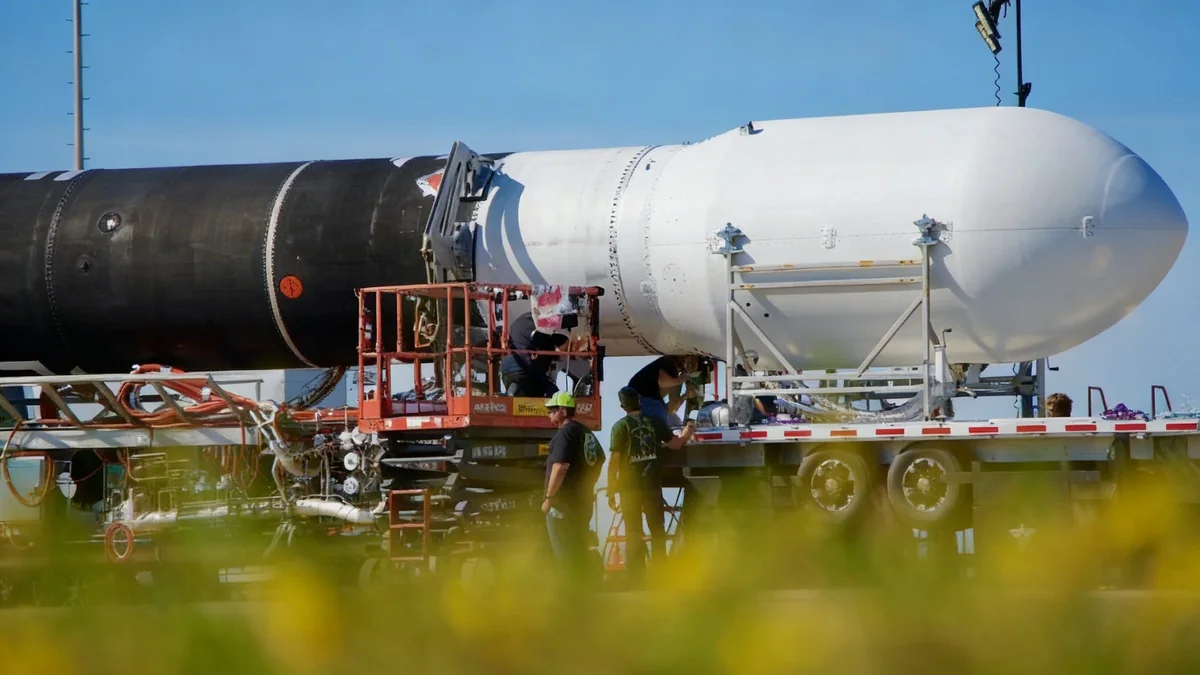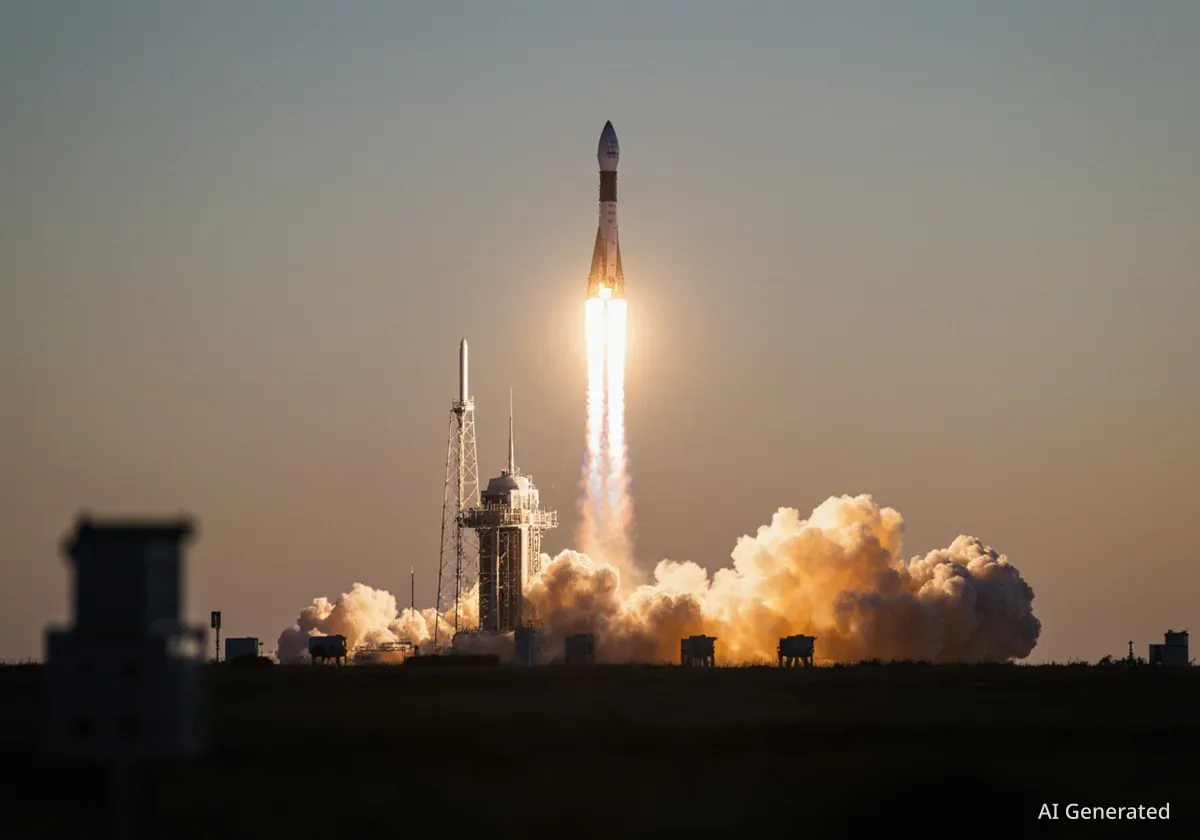An Atlanta-based startup has developed a new lightweight material that protects commercial-grade computer processors from the harsh radiation of space. This innovation, called Plasteel, could allow satellites to use powerful, modern chips for artificial intelligence and other complex tasks, a capability previously limited by the need for older, radiation-hardened electronics.
The company, Cosmic Shielding Corporation, recently secured a significant contract with the U.S. Air Force Research Laboratory to further develop and model the technology's performance, signaling growing interest from both military and commercial sectors.
Key Takeaways
- Cosmic Shielding developed a nanocomposite material called Plasteel to shield electronics from space radiation.
- The material enables the use of modern, off-the-shelf processors, like Nvidia GPUs, in satellites.
- A successful in-orbit demonstration in 2023 proved an Nvidia chip could operate error-free while protected by Plasteel.
- The company received a $4 million contract from the U.S. Air Force to create a predictive model for shielded electronics in space.
The Radiation Barrier to In-Orbit Computing
Satellites operating in space are constantly exposed to intense radiation from cosmic rays, solar particles, and Earth's own trapped radiation belts. This environment can damage or destroy standard electronic components, forcing spacecraft designers to rely on specialized, radiation-hardened (rad-hard) processors.
While reliable, rad-hard chips are often significantly less powerful than their commercial counterparts. According to industry experts, these specialized processors can be five to ten generations behind the latest consumer technology. This technological gap has become a major obstacle for deploying advanced computing, such as artificial intelligence and machine learning algorithms, directly in orbit.
Why Onboard Processing Matters
Processing data directly on a satellite, rather than transmitting raw data back to Earth, offers several advantages. It can significantly reduce the time delay in getting actionable information, lower the demand on communication bandwidth, and allow satellites to operate more autonomously. This is especially critical for military surveillance, Earth observation, and complex scientific missions.
A New Shielding Technology Emerges
Cosmic Shielding, a startup founded in 2020, has addressed this challenge with a novel material. The company developed a lightweight nanocomposite it brands as Plasteel. This material is designed to provide robust radiation shielding without the significant weight of traditional materials like aluminum, which can drive up launch costs.
Successful In-Orbit Demonstration
In 2023, Cosmic Shielding partnered with small-satellite manufacturer Aethero to test its technology in a real-world environment. A standard, off-the-shelf Nvidia Jetson Orin NX graphics processing unit (GPU) was enclosed in Plasteel shielding and launched into orbit aboard an Aethero cubesat.
"The mission demonstrated the Nvidia GPU can operate safely and error free for long durations in orbit," said Yanni Barghouty, co-founder of Cosmic Shielding.
This successful demonstration provided crucial validation for the technology and has helped the company attract new customers from both the private and government sectors. According to Barghouty, the company currently has seven active systems in space, with another 10 scheduled for launch within the next year.
U.S. Air Force Invests in Predictive Modeling
The success of Plasteel has captured the attention of the U.S. military. In June, the Air Force's technology office, AFWERX, awarded Cosmic Shielding a Tactical Funding Increase (TACFI) contract. This type of contract is designed to help small businesses transition promising technologies from prototypes to operational use.
Contract Details
The 18-month contract is valued at $4 million. It includes $2 million from the Air Force Research Laboratory (AFRL), which was matched by an additional $2 million from the company's existing customers. This represents the largest award amount available under the TACFI program.
Under the agreement, Cosmic Shielding will not just supply its material but will also develop a sophisticated modeling tool for the AFRL. This tool will predict how various commercial electronics, such as Nvidia Jetson and Xilinx processors, will perform in space when protected by different shielding solutions.
The process involves:
- Testing commercial chips under various radiation types in a lab.
- Comparing the performance of Plasteel against traditional aluminum and hybrid shielding methods.
- Combining test data and simulations into a "shielding forecast" model.
This predictive model aims to help mission designers select the right hardware and shielding configuration more efficiently, reducing the need for years of costly and time-consuming trial-and-error.
Broader Applications and Company Growth
The potential uses for Plasteel extend beyond protecting satellite processors. Cosmic Shielding is also exploring its application for human spaceflight, where it could shield both astronauts and critical life support electronics from harmful radiation.
In 2023, the company partnered with Axiom Space to test the material aboard the Ax-2 mission to the International Space Station, gathering data on its performance in a crewed environment.
Strategic Expansion and Key Advisors
To support its growth, Cosmic Shielding plans to relocate its headquarters from Atlanta, Georgia, to Huntsville, Alabama, a major hub for the aerospace and defense industries. "We’re getting a lot of support from the state there as well to move the infrastructure there. So that’s going to be the new headquarters,” Barghouty stated.
The startup has also attracted high-profile experts to its advisory board, including former senior Pentagon official Lisa Porter and Michael Griffin, a former NASA administrator who also served in a top Pentagon role. This level of expertise underscores the strategic importance of the company's technology.
With growing interest from international partners like the European Space Agency (ESA) and Japan's JAXA, Cosmic Shielding's technology is positioned to play a key role in enabling the next generation of advanced computing in space.





